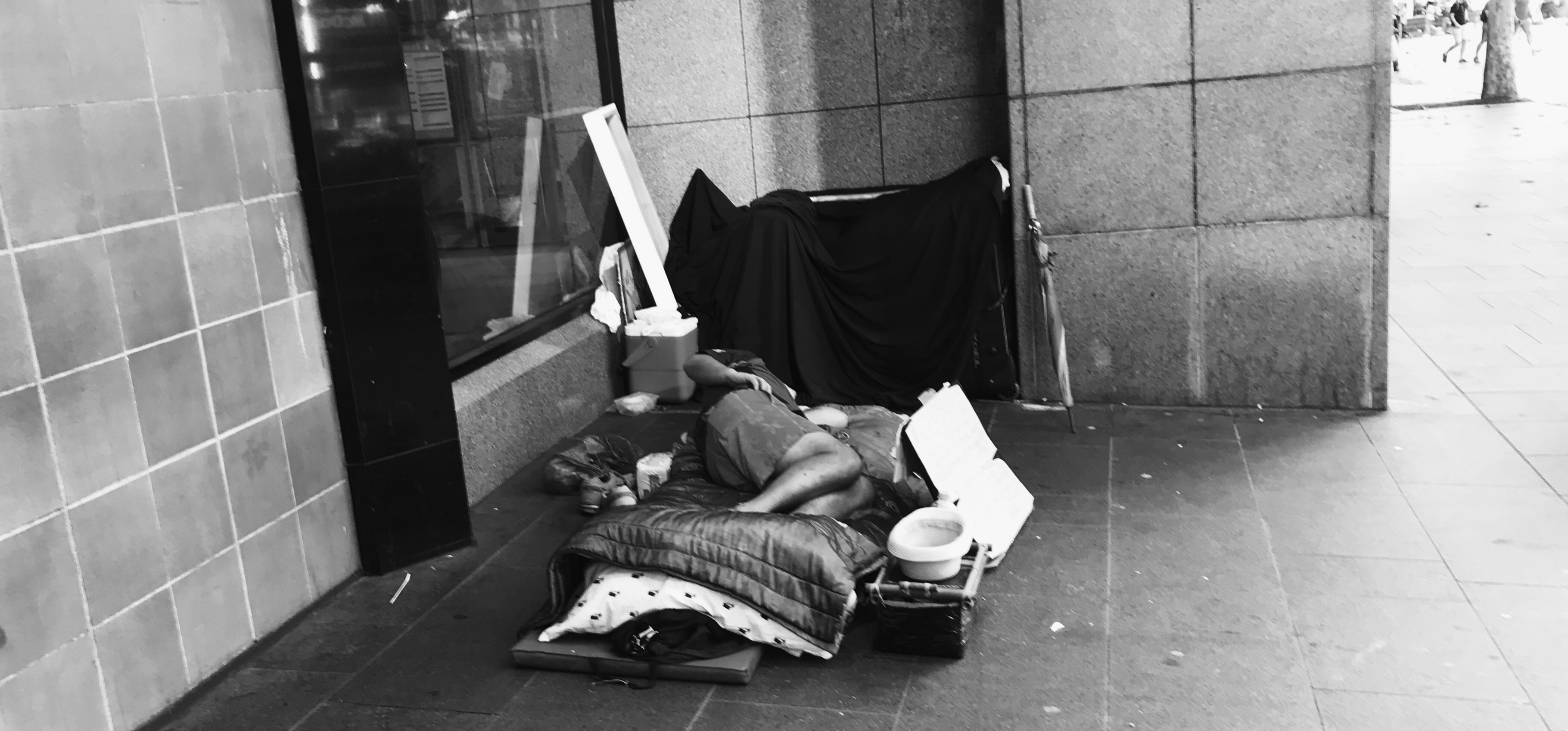Hatch@Macleay reporter, Joe Attanasio, draws on the latest Census data to suggest ways we can help Australians experiencing homelessness.
The number of people officially considered homeless in Australia is rising… and getting younger.
According to a new report by the Australian Bureau of Statistics (ABS), 116,000 people in Australia are without a home. That’s 14,000 more than when the last Census was held, in 2011.
Older women and young people aged between 18-24, are particularly affected. In fact, a quarter of all people experiencing homelessness in 2016, were between 20 and 30-years-old.
Despite the nation experiencing the longest period of economic growth in the developed world, more Australians are being forced out of their current living arrangement.
The General Manager of Population and Social Statistics for the ABS, Dr Paul Jelfs, describes overcrowding as one of the main factors in the growing crisis.
“People living in ‘severely’ crowded dwellings… was the greatest contributor to the national increase in homelessness,” he said.
“On Census night, 8,200 people were estimated to be ‘sleeping rough’ in improvised dwellings, tents or sleeping out.”
With the situation reaching confronting new levels, it begs asking what options are available to average Australians, to support the homeless community.
To start, we need to better understand what defines being homeless. A common misconception is that we only consider the homeless to be the people we see sleeping on the street, in tents and on park benches. However, the reality is those known as “rough sleepers” make up just a small fraction of the official homeless population – at just six per cent.
The rest are living with friends, couch surfing from house to house, or staying in shelters. Triple J’s Hack program recently heard from listeners who confessed to finding hook-ups on Tinder, purely to have a place to stay the night.
The Australian Human Rights Commission says that fundamentally, homelessness is about lack of connectedness with family, friends and the community, and a lack of control over one’s environment.
So, how do we help
1. Kindness: The most important way that we can help homeless people, is to show compassion and understanding. Little things can make a big difference and it can be as simple as saying “good morning” or even just cracking a smile. Avoid stereotyping and realise that every person has taken a different path that has led them to that point.

2. Donations: Do you have clothes you don’t wear anymore? Shoes you wore once, then got over? Long lasting or tinned foods? The Salvation Army and St Vincent de Paul are just two of the many organisations that accept cash, clothing and food – to directly help those in need. Be mindful of the seasons when offering to donate, as the needs of the homeless will change depending on the weather. It’s also a nice idea to consider donating around religious holidays – as these can be particularly lonely times of year.
3. Volunteer: Giving your time is free and has the potential to really impact someone’s life. Organisations like Youth Off The Streets, Sydney Homeless Connect and GoVolunteer, are great places to start.
4. Keep an eye out: Be on the lookout for upcoming events that you can get involved with; contact your local shelter or council to find out when the next fundraiser is, and encourage your community to get involved; share the events on Facebook and retweet. Raising awareness and addressing the problem head-on is the only way we are going to bring an end to this crisis.
5. Be prepared: If you regularly encounter homeless people… why not think about packing an extra sandwich for lunch if you can afford it, or familiarise yourself with all the nearest shelters in the vicinity and politely suggest if they are aware of the facilities nearby. Even offering pet treats would make a big difference to those with furry friends keeping them company.
6. Educate those around you: It’s important to understand that very few people take to being homeless voluntarily. For some, it could be due to the loss of a job, a split with a partner, an expensive injury, mental illness – or they could be a runaway, and potentially at risk. Lead by example and teach your peers to show respect and encourage them to help.
If you or anyone you know is struggling with homelessness, contact Housing NSW or Lifeline on the links below – Story and featured image, Joe Attanasio


